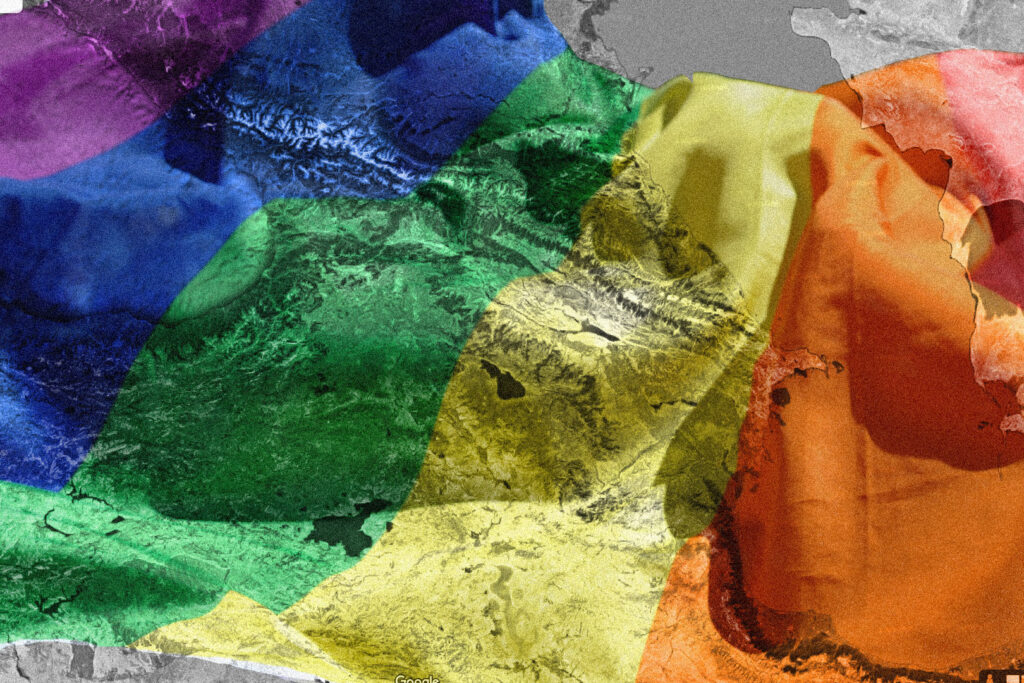Unless feminism in the South Caucasus becomes more inclusive of queer rights and the rights of those who suffer from many other oppressions it will remain utterly impotent to achieve even its own modest aims.
Same-sex relationships have been decriminalised in Azerbaijan and Georgia since 2000 and in Armenia since 2003. This was an important step towards developing queer inclusivity and getting access to the Council of Europe for all three countries. Today, over a decade-and-a-half later, the queer community of these countries still face deeply rooted challenges and struggles in all spheres of life.
In the South Caucasus, liberal feminism — that is, a conception of women’s rights that is mainly concerned with the economic and political challenges which women face in society, but rejects the presence of other systematic obstacles — remains dominant. But through its exclusion of queer individuals, and its rejection of the presence of deeply rooted patriarchal obstacles, it remains not only ineffective but indeed is often counterproductive.
For feminism to re-emerge as an effective movement in the South Caucasus, it must — like its sister movements in the West — rediscover a wider inclusivity, and fight not only for the economic and political rights of heterosexual women but also people who face multiple layers of oppression including, though not limited to, sexism, racism, homophobia, and transphobia.
Limited gains
In effect, the liberal women’s movement in the South Caucasus concerns itself primarily with the gender pay gap and women’s political rights — primarily women’s representation in politics and equal treatment in this sphere. Other important issues such as reproductive health, abortion, and restrictive gender roles are not even on the agenda.
Arguably even the limited gains that the liberal feminists seek have not been reached, except for perhaps an elite few. According to the World Bank, women earn 20% less than men in Armenia 40% less in Georgia, and 47% less in Azerbaijan. The political front is little better, in Azerbaijan women hold 21% of seats in parliament, they hold 24% of seats in Armenia and only 14% of seats in Georgia.
Worse yet, while the gains from liberal feminist activity in the region have been limited, attacks by these same individuals have done real harm to the queer community. In all three countries, there are women in positions of influence both in government and civil society, ostensibly working for women’s empowerment, who have attack and excluded the queer community.
The case of Elmira Suleymanova, Azerbaijan’s former Human Rights Defender is paradigmatic. ‘I don’t think that it [homosexuality] is normal’, she said in 2011. ‘The roles of the sexes are defined by nature.’ Even without purposefully pushing queerphobic discourses, some feminist organisations still exclude queer individuals and queer issues for fear of being discredited.
Meanwhile, homophobia is reinforced and reproduced through both traditional and social media. It is instrumentalised both by local figures, including politicians, and, as well as from abroad — most notably, Russia.
While much homophobic rhetoric medicalises queer people by falsely describing them as somehow ‘sick’, pro-natalist rhetoric and policies — such as Armenia’s ‘5 million by 2050’ project — often extends that criticism by framing queer people as anathema to the healthy growth of the body politic.
Pro-natalism centres heterosexual families, who live according to ‘traditional values’ and have many children, at the foundation of national development. To be a citizen while living outside of this mould, is then, in a pro-natalist view, to be a bad citizen — to be opposed to the growth and health of the nation. A recent speech by Ilham Aliyev, in which the Azerbaijani President called LGBTQI+ people ‘a threat’ to the growth of the Azerbaijani population is illustrative of the most explicit and anti-queer manifestation of such a logic.
What next?
As long as the current exclusionary liberal feminist movement remains dominant in the South Caucasus, there is no hope for challenging the deep-rooted patriarchal oppressions and hatreds plaguing our societies.
Liberal feminism, despite ostensibly being based on the idea of women’s rights, by focusing only on economic and political rights tacitly accepts the patriarchy of so-called ‘traditional values’ — which, by the way, also reinscribe both economic and political discrimination against women.
It has a fundamentally elitist approach, excluding natural allies such as lower-class women and those who are LGBTQI+, resulting in a small political constituency that struggles to accomplish even limited goals.
We must realise that if progress is to be made, an inclusive feminism that recognises many different and intersecting oppressions must replace liberal feminism in the South Caucasus. Progressive queer activists of the region, such as, for example, members of Pink Armenia or Georgia’s Equality Movement, have already taken the first steps. They do not fight only for their own liberation but also the multidimensional liberation of all women and other marginalised groups regardless of their identity — they have offered a hand, and now the feminist movement must simply clasp it.
The opinions expressed in this article are the author’s alone, and do not necessarily reflect the views of OC Media’s editorial board.




 11 February 2021
11 February 2021



